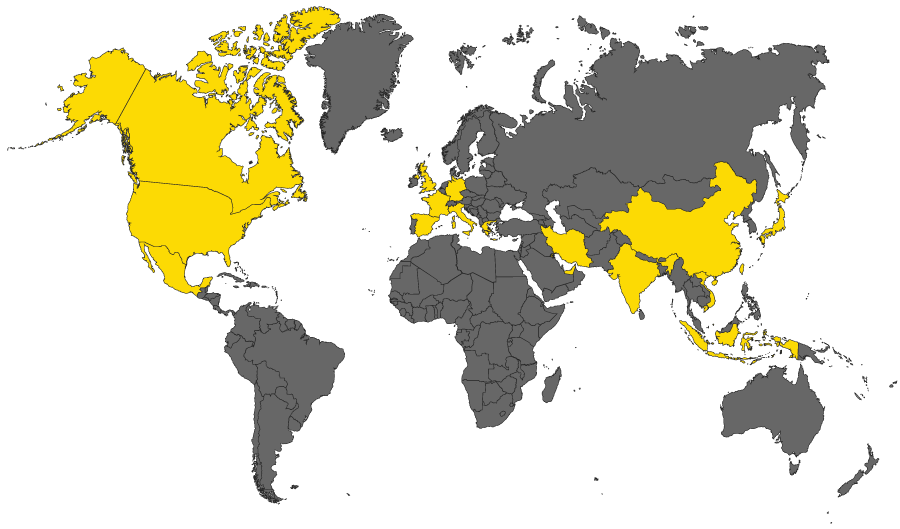AI for Therapists: 5 Smart Automations to Expand Your Practice Without Burnout
If you’re a therapist in 2025, chances are you’ve heard the buzz—maybe even the anxiety—around AI and what it means for your profession.
Some say it’s the beginning of the end for human connection. Others are already letting it write their blogs (like this one! hey there!), answer intake emails, and organize client data behind the scenes.
Our opinion at Graphicwise? AI is NOT here to replace you, and fundamentally cannot. It’s here to multiply your presence, streamline your operations, and support the work you’ve spent years mastering.
But like any tool, its power depends on how you use it.
If you ignore it, you risk falling behind: out-marketed, out-scaled, and outpaced by therapists who are integrating AI thoughtfully into their practices. If you embrace it strategically, though, it can help you reduce admin burnout, elevate your online presence, and offer even more meaningful support to the people who count on you.
This introductory guide was created for therapists like you: professionals who value human connection and want to stay ahead of the curve.
Remember, AI isn’t a threat to therapy—it’s a quiet, behind-the-scenes assistant helping you focus on what matters most: healing.

1. Use ChatGPT or Claude to Automate Session Prep & Identify Client Patterns
What It Is:
ChatGPT and Claude are advanced AI language tools that help you process written information quickly and meaningfully.
Why You Might Need It:
Session prep can eat up valuable time, especially when trying to recall past conversations, track patterns, or develop a coherent treatment flow. AI can synthesize these for you in minutes.
How It Can Transform Your Practice:
Instead of spending 30–60 minutes reviewing notes and planning sessions, you can reduce that to under 5 minutes. This allows you to be more present with clients, take on more sessions if you choose, or simply get your evenings back.
Step-by-Step (ChatGPT):
➡️ Go to chat.openai.com
➡️ Sign up and subscribe to ChatGPT Plus ($20/month) for access to GPT-4
➡️ Paste de-identified notes from previous sessions
✅ Prompt example: “Summarize the major emotional themes from these 3 sessions. What therapeutic direction would you recommend next?”
Alternative Option: claude.ai by Anthropic (currently free, with more nuanced understanding of longer documents)
2. Generate Consistent Content & Grow Authority with Jasper.ai
What It Is:
Jasper is an AI writing assistant designed to help professionals create marketing content quickly—from blog posts to Instagram captions.
Why You Might Need It:
Most therapists know content builds trust, credibility, and visibility—but very few have time to write weekly blogs or social posts. That’s where AI steps in.
How It Can Transform Your Practice:
Publishing consistent content helps you stand out in a crowded market, educates your audience, improves SEO, and positions you as a trusted thought leader—without you spending hours writing.
Step-by-Step:
➡️ Go to jasper.ai
➡️ Start with a 7-day free trial, then subscribe starting at $49/month
➡️ Choose a “Blog Post” or “Social Post” template
➡️ Input a command like: “Write a compassionate, insightful blog post about managing postpartum anxiety from the perspective of a licensed therapist.”
✅ Edit lightly, publish, and move on
3. Automate Your Intake Process & Client Follow-Up with Tally + Zapier + Google Sheets
What It Is:
A no-code automation system using online form builder Tally, workflow tool Zapier, and Google Sheets to create a seamless back-office.
Why You Might Need It:
Manual intake is time-consuming and prone to error. Following up with new clients or sending reminders often falls through the cracks.
How It Can Transform Your Practice:
You’ll automate your intake forms, client data storage, and personalized follow-ups—saving admin time while creating a more polished, professional first impression.
Step-by-Step:
➡️ Visit tally.so → Sign up for free
➡️ Create a branded intake form (name, email, reason for seeking therapy, etc.)
➡️ Go to zapier.com → Create a free account
Build a Zap that:
✅ Sends form responses to Google Sheets
✅ Sends a custom “Welcome” email via Gmail
Cost:
✔️ Tally: Free (Pro $29/mo for branding and logic features)
✔️ Zapier: Free for 100 tasks/mo (Pro starts at $19.99/mo)
✔️ Google Sheets: Free with Gmail
Pro Tip: Add more Zaps to send appointment reminders, request testimonials, or deliver homework.
4. Support Clients Between Sessions Using Wysa (AI Mental Health Companion)
What It Is:
Wysa is a clinically validated AI chatbot app offering CBT-based emotional support, journaling, mindfulness, and mood tracking.
Why You Might Need It:
Your clients may struggle in the days between sessions. You want to offer support—but your time is limited. Wysa gives them a tool for emotional regulation without overstepping boundaries.
How It Can Transform Your Practice:
You empower clients to manage their emotions between sessions while encouraging accountability. Some therapists bundle the Wysa app into care plans to increase perceived value.
Step-by-Step:
➡️ Go to wysa.io
➡️ Click For Therapists or For Organizations
➡️ Request a demo for your practice, or recommend the free app to individual clients
Cost:
✅ Free version for clients
✅ Therapist tools: ~$15/month per client (custom pricing available)
Note: You can get insights (with client consent) on journaling and usage trends.
5. Optimize Your Online Visibility with ChatGPT + Keywords Everywhere
What It Is:
A combo of keyword research and AI writing to rewrite your Psychology Today profile, personal website, or Google Business description for better ranking.
Why You Might Need It:
If your phone isn’t ringing, chances are your online presence isn’t optimized for the words people are actually searching.
How It Can Transform Your Practice:
Instead of hoping someone stumbles across your listing, you’ll appear when people actively search for help—especially locally or by specialty.
Step-by-Step:
➡️ Install Keywords Everywhere browser extension: keywordseverywhere.com
➡️ Search phrases like “EMDR therapist in Chicago” or “couples counselor near me”
➡️ Note which terms have high volume but low competition
➡️ Open ChatGPT (Plus version for best results)
➡️ Prompt: “Rewrite my Psychology Today profile using the keyword ‘grief therapy in Austin’ in a warm, professional tone.”
✅ Copy/paste into your listing or website
Cost:
✔️ Keywords Everywhere: $10 for 100,000 credits (usually lasts months)
✔️ ChatGPT Plus: $20/month
Therapists, a final word:
The future of therapy does NOT belong to machines, no matter what the hype says.
The future (as usual) belongs to human beings who are willing to adapt. AI won’t, and really can’t, replace the nuance of empathy, the power of presence, or the sacred space you create for your clients. But it can remove the busywork, help you reach more people, and give you back time to focus on what truly matters.
The tools in this guide are not just tech shortcuts—they’re invitations to reimagine how your practice operates, grows, and sustains itself. You don’t have to become a digital expert overnight. You just have to stay curious, open-minded, and willing to experiment. At Graphicwise, we’re here to help therapists navigate this evolving landscape with clarity and confidence.
Whether you’re ready to dive in or just dipping your toe, know this: AI isn’t the end of your profession. With the right approach, it’s the beginning of a more efficient, expansive, and fulfilling version of it.
Let’s build that future together.
Serving clients across the globe.



